僕は、日本人の英語において、一番多く見られる間違いと例文のリストを作ってみました。それは調査の下にあります。皆さんはどう思いますか? 他に思い当たることがありますか?それとも順番を入れ替えますか?皆さんのご意見を聞かせていただきたいです!
1. 定冠詞と数
誤 Now that I live in the energetic, modern China, I feel my future is in my hands.
正 Now that I live in energetic, modern China, I feel my future is in my hands.
訳 今、現代の活発的な、現代の中国に住んでいるので、運をつかんだ気になっています。
2. 前置詞
誤 Believe me! I have no objection against what you say.
正 Believe me! I have no objection with what you say.
訳 僕を信じてよ! あなたが言うことに対しては何も反対しないよ。
3. 時制
誤 He didn’t know what to do when he found out that the bus is leaving.
正 He didn’t know what to do when he found out that the bus was leaving.
訳 彼は、バスが出発していることを分かった時、どうすればいいのか分からなかった。
誤 When I think back to my childhood, I could still see the garden I used to play in.
正 When I think back to my childhood, I can still see the garden I used to play in.
訳 子供のころを思い出すと、まだ僕が遊んでいた庭が目に浮かぶ。
4. 仮定法
誤 If only she were here, she will help us.
正 If only she were here, she could help us.
訳 もし彼女がいれば、助けてくれるのに。
5. 関係代名詞
誤John who is the director of the movie has suddenly become very famous.
正John, who is the director of the movie, has suddenly become very famous.
訳 映画監督のジョンは突然とても有名になった。

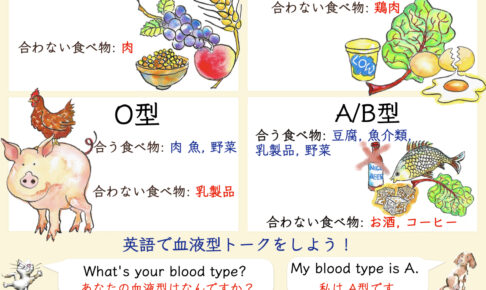
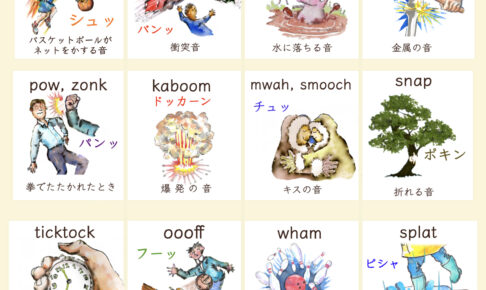
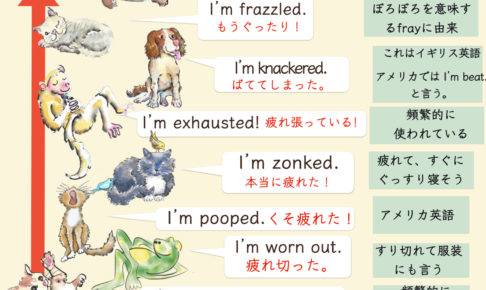
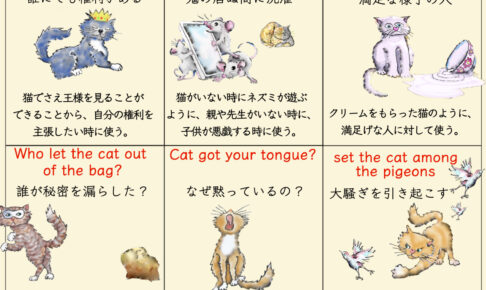




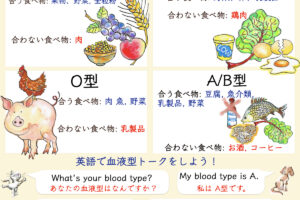
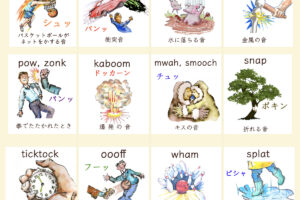
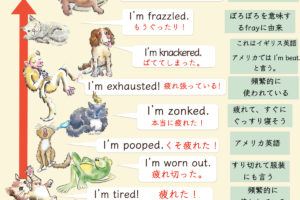
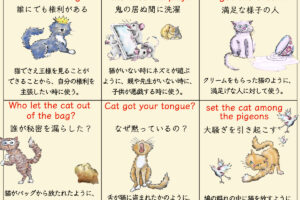
三単現のS(三人称単数現在)も話してきると、よく間違えます。書き言葉では決して間違えませんが…
正しい she has a pen.
間違い she have a pen.
Hey,
Thanks for the comment. That’s a great point. When you are writing English you have more time to think and so you make less errors. When you are speaking, there’s no time to think about anything so it’s really easy to make mistakes that you wouldn’t make if you had more time. That happens to me all the time when I speak Japanese.
ものすごく初期の頃に習い、とても簡単に説明されていたけれど、
いまでも定冠詞、とっても難しい。
会話では、時制や単語を気を使っていると相当抜けていることも多いし、
冠詞がいらない場合もあるので、何年経っても自信を持てない。
語学取得への道は長し・・・かな。
でも、分かると楽しいので、LukuさんのHP楽しみにしてます!!
The important thing to remember is that everyone is in the same boat. There are many Japanese people who have mastered the definite article, but there are far, far more Japanese people, even advanced language learners, who have yet to get a good grip of the subject. If your native language does not use articles, it really is a very, very difficult thing to understand.
すいません・・。Lukeさんのスペルが間違ってました。
最後の一行、訂正をさせてください。
でも、分かると楽しいです。
これからもLukeさんのHP楽しみにしてます!!
Hi Nao,
No problem. I’m glad you enjoy the site.
Hello Luke!
I just found your interesting website when I was looking for the meaning of the word, Mockney. I’ve selected articles for the poll afterwards.
I personally think that making errors on articles (plus countable or uncountable and singular or plural noun) are the quickest way to find out if a Japanese can use English accurately.
Other grammatical matters such as conditionals or tenses, etc are not that difficult, if you study English properly. (Or I should say “hit the books?”^^)
Speaking of tenses, this could not be a grammer thing, but British English tend to chose the present perfect when American one use the past simple.
You seem to know both sides of English, so what do you think of it?
I actually used to live in the UK for several months then I realised that Brits often said “Have you had lunch?” “She’s said~” or “~, haven’t you?” instead of using the past simple.
Most Japanese only know American English because they were taught it at school. I am intentionally writing British way of spelling of the words in this post, it may look peculiar for some Japanese readers though!
Hi Kazu,
It’s interesting to know about how you found my site. Thanks for casting your vote. For the most part, tense usage is the same in Britain and America, but you are right that it does vary sometimes. Thanks for the example.
what is this site??
これは英語についてのサイトです。
very entertaining
Thanks a lot.
Hi Luke,
In regards to the point “4.”,you described the following sentence is wrong:
“If only she were here, she will help us.”
I thought about its reason.
In this case,both“if” clause and main clause are refer to event in the present on correct meaning in the sentence.
・“if” clause (hypothetical) : ” If only she were here (right now), “: in the present
Its meaning is including “she is not here right now though,”
So,the main clause shold be like:
” ,she could ( or would ) help me.” (at the same time.)
For example,
(E.g.1: contrary-to-fact & both in the present)
・” If I were you,I would not agree with them. ”
(E.g.2:hypothetical events Not 100% impossible & both in the present )
・” What would you like to do if you were to do anything? ”
(E.g.3:events that did not happen & both in the past)
・” If I were to be there, I would leave the place early. ”
Other than those above,there’s a case that both “will” and “if & were” can be used
in one sentence.
Now let’s move on to this dialogue example:
Q:”How will I know if my products were sent?”
A:”If your products are sent, we will notify you via email.”
The products haven’t been sent yet.
What does “were” mean in the sentence “Q”?
We have to focus on also “are” which is used in the sentence “A”.
I consider it as like this so far:
“Were” used in the “if” clause of “A” means hypothetical events about shipping in this case.
Therefore,its answering use “are” as event in the present.
Moreover,to know its event has done is after that.
Because,its notification will let you know that “we have shipped your order”.
So,this dialogue example is correct.
Q:”How Will I know if my products Were sent?”
A:”If your products Are sent, we Will notify you via email.”
Besides,I think the usage of “were” can be used by itself for expression about hypothetical
events.
For example,
・”We are collecting your opinion about the way in which the insurance were sold.”
There’s no “if” in above sentence.
However,they don’t refer to whether the insurance has already been sold or not.
“Were” in the sentence expresses that they refer to just hypothetical events.